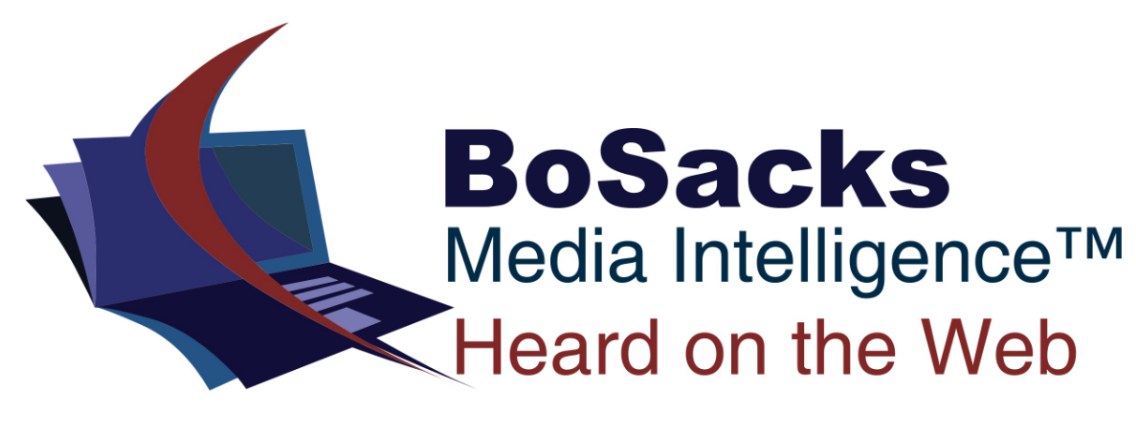BoSacks Speaks Out: LLMs, Copyright, and the Battle for Publishing’s Future
By Bob Sacks
Thu, Jul 17, 2025

With Real-World Examples from the Frontlines
Let’s not kid ourselves. The rise of Large Language Models, these digital vacuums trained on the detritus and brilliance of the internet, has jolted the content world in ways we’re only beginning to comprehend. These aren’t quaint search engines or helpful grammar bots. They are full-scale content engines, powered by massive ingestion of text, yours, mine, and everyone’s, without so much as a tip of the hat or a licensing agreement in sight.
For magazine publishers, that should feel like déjà vu, only this time the encroachment isn’t from Google’s news algorithm or Facebook’s feed games. It’s something deeper. Something that doesn’t just link to your content, it digests it, metabolizes it, and spits out a synthetic version that, in some cases, may outrank your original in search. Welcome to the era of artificial intelligence, where your editorial blood, sweat, and keystrokes fuel someone else’s machine.
But here’s the thing. This isn’t a funeral dirge for publishing. It’s a call to arms.
The False Comfort of Automatic Copyright
Yes, your work is protected the moment it’s created. But if you haven’t registered it with the U.S. Copyright Office, that protection is little more than a decorative badge on a locked door. Without registration, you can’t sue in federal court. You can’t access statutory damages. You can’t claim attorney’s fees. You can’t even send a proper legal shakedown letter with any real muscle behind it.
Look at The New York Times. In 2023, they drew a line in the sand and sued OpenAI and Microsoft for copyright infringement, arguing their content had been used to train GPT without permission. And guess what? They weren’t bluffing. They had their copyrights in order. They had the receipts. Their registration strategy wasn’t reactive; it was proactive, and it gave them the clout to take on two tech titans in court.
Meanwhile, countless smaller publishers, those without the budget or the legal bench, watched from the sidelines, wondering if their content had also been swallowed whole. Spoiler alert: it probably was.
The Litigation Lever
Litigation isn’t about marching into court for a pound of flesh. It’s about leverage. It’s about the threat of a lawsuit with teeth.
Imagine being a niche magazine publisher, say, you run a trade journal on agriculture or a quarterly on Appalachian folk culture. Your articles were scraped by AI bots and are now showing up, paraphrased and souped-up, in chatbot outputs. Can you sue? Only if you registered. And only if you did it in time.
And let’s not forget the Copyright Claims Board, a little-known but powerful tool launched in 2022. It lets creators resolve smaller copyright disputes for $40, without stepping into a courtroom. A podcaster recently used it to challenge the unauthorized use of transcripts in an AI training set, and won. It’s not headline news, but it’s precedent, and it matters.
Licensing: The Missed Opportunity Hiding in Plain Sight
While everyone’s fretting about infringement, there’s a quieter revolution at play, licensing. LLMs are hungry for content. They need it to improve, to become more accurate, less biased, more fluent. And that means they need you.
Take Axel Springer, the German media giant. In 2023, they struck a licensing deal with OpenAI to allow use of content from Bild and Die Welt. That wasn’t charity. It was strategy. They didn’t wait to sue, they saw the opportunity, negotiated smartly, and got paid.
In contrast, most American magazine publishers have stayed on the sidelines. They lack scale, digital organization, or rights clarity. But what if they banded together? That’s where something like The Magazine Coalition comes in. Aggregate thousands of back issues, clean up the metadata, and you’ve got something OpenAI, Anthropic, or Google has to pay attention to. Individually, you’re a drop. Collectively, you’re a reservoir of premium, vetted, niche content.
A Tiered Approach to Time
Not all content is created, or valued, equally over time.
Recent content (within 90 days) is pure gold. Timely, relevant, and valuable to LLMs training on current discourse. Get it registered fast, and you’ve got the strongest legal hand.
Content from the last five years? Think of the backlist at Condé Nast or Hearst. Articles from Bon Appétit, Popular Mechanics, or Runner’s World, all have long tails of utility, especially when algorithmically reanimated. Licensing this material is a no-brainer. But only if it’s registered and rights are clear.
Archival content? Here’s the kicker: LLMs want it. Think Scientific American from 1975. Think Ebony interviews from the 1960s. This isn’t old junk. It’s historical data, linguistic texture, cultural context. AI needs this to be better. Publishers should see their archives not as dusty tombs, but as high-value training data. National Geographic is already digitizing its entire photo archive for AI licensing purposes. Why aren’t more of us doing the same?
Final Thoughts: Adapt or Abdicate
Let’s not pretend the legal system will save us. “Fair use” is a murky swamp, and courts move glacially. Congress? Still arguing over TikTok. The only path forward is proactive. Register your content. Audit your rights. Modernize your archives. Build the infrastructure to license at scale.
This is not theoretical. It’s happening now.
The New York Times is suing.
Axel Springer is licensing.
Reddit inked a licensing deal with Google worth $60 million.
Shutterstock and Getty Images are selling image data for AI training.
Meanwhile, the magazine industry, once the vanguard of curated content, has yet to organize its defenses or unlock its opportunities.
We are not just custodians of our content. We are negotiators, litigators, and yes, entrepreneurs. This is the future of publishing: rights management as revenue stream. Legal leverage as strategy. Archives as asset class.
The publishers who win this next chapter won’t be the loudest or the most litigious.
They’ll be the most prepared.
